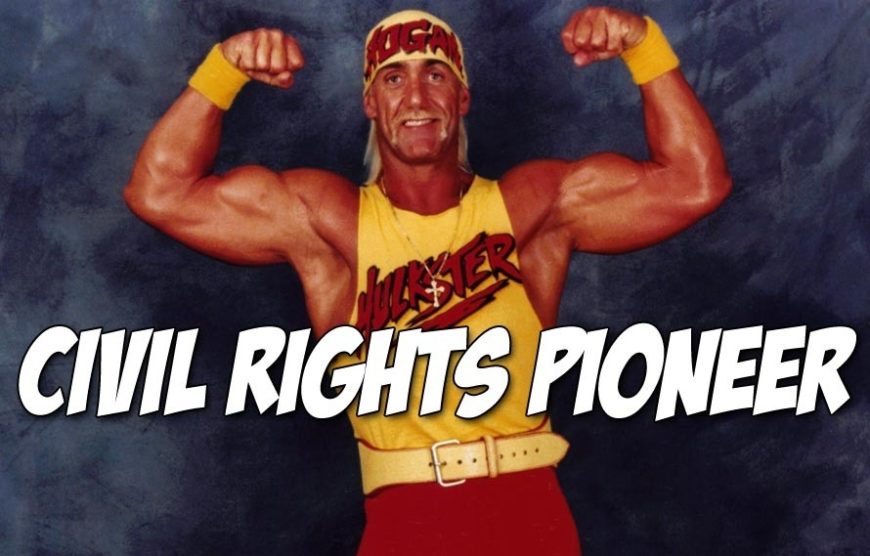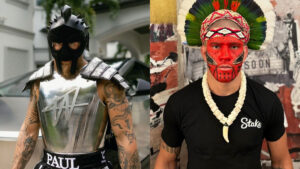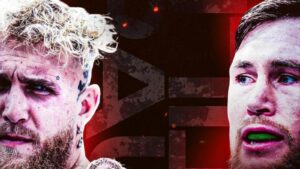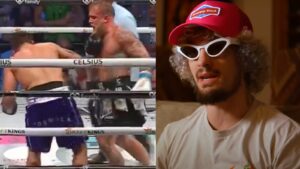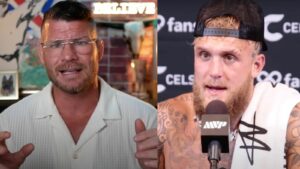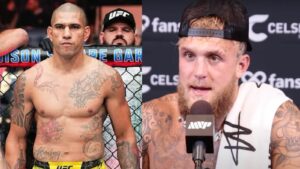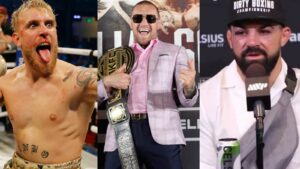The sun rises over Venice Beach as Terry Bolea — better known as Hulk Hogan — sits on his patio overlooking the ocean. He groans as he stretches out his legs in front of him, glancing over to me while wearing his signature sunglasses and bandana. His blonde locks flow from the bandana onto his shoulder, accented by his ever-blonde handlebar mustache that reflects the sun. His skin is distinctly orange.
“You know, brother,” he grumbles while massaging his left knee. “I laid it all on the line for those people, this is the price that I paid for it, but I’d do it all over again in a heartbeat.”
Hogan’s legs might not work like they used to, after dropping the big leg drop night-after-night for sold out arenas across the world, but there is still an aura around him that is undeniable. The history books will all point to the boilerplate journey that Bolea led to becoming Hulk Hogan, the biggest star in the world of professional wrestling, but will gloss over the hardships that he had to face. Sure, he was big, he was muscular and naturally good-looking, with his bleached-blonde hair and magnetic sex-appeal that summed up American exceptionalism in the 1980’s, but history will forget the challenges that he had to overcome due to his orange skin.
“Look, brother,” he sighs, leaning back in his chair while pointing a finger across the table at me, his head shaking. “Kermit the Frog said that it wasn’t easy being green, brother, but let me tell you, it wasn’t any easier for the Hulkster being orange, either, dude!”
Indeed Hogan had to overcome obstacles to become the first orange professional wrestling star to be given a chance at being the World Champion, the main star. The gamble was all on Vincent Kennedy McMahon, a young promoter based out of Connecticut trying to differentiate himself from his father’s legacy with the World Wide Wrestling Federation.
“At the time there were no orange wrestlers,” McMahon explained. “So the idea of taking a man with orange skin and not only placing him at the top of the card, but having him as your champion, well, it was unheard of.”
The gamble was one that not only paid off, but made wrestling history. Hulk Hogan not only went on to become the first orange wrestling champion, but he became a pop culture icon. Hulk Hogan was bigger than the wrestling industry, he was a larger than life figure. His struggle is reflected in the UFC’s Light Heavyweight Champion, Jon Jones, who has had to overcome similar struggles with being the UFC’s first African American Champion.
“Everyone wants to hate,” the young star admitted. “What everyone doesn’t want to admit is that it bothers them to see a black world champion in the UFC. What I’m doing has never been done before, just like that spinning back elbow that I did. There has never been a black UFC Champion before.”
Since Jon Jones burst onto the scene in the UFC back at UFC 87 in 2008 he’s had to overcome many boundaries, such as youth, lack of experience as well as his race. He has handled these with grace and composure, much like Hulk Hogan did while coming up in the wrestling world in the 1980’s.
“You know what, brother?” Hogan asks, his voice raspy and broken. “Hulk Hogan had to prove himself to everyone and anyone out there, but when I bodyslammed Andre the Giant for the first time ever and every bone in my body turned into liquid, when the oceans parted and Andre fell thirty feet to the mat, Hulkamania became real, even though I was orange, brother. At that moment, brah, the color of my skin was the furthest thing from anyone’s mind.”
Critics have been especially harsh on the young champion during his UFC Light Heavyweight title reign, including those that would point out that there have been black UFC champions in the past before, including former Heavyweight Champions Kevin Randleman and Maurice Smith, Light Heavyweight Champions Rampage Jackson and Rashad Evans, Middleweight Champion Anderson Silva, Welterweight Champion Carlos Newton, Lightweight Champion Benson Henderson and Flyweight Champion Demetrious Johnson. Jones was quick to point out that none of those names are for real people, that the ones that are real people, he has defeated or, in the case of Anderson Silva, he’s Brazilian, not black.
“Everyone wants to poke holes in everything that I say,” Jones says. “But I’ve beaten Quinton Jackson, I’ve beaten Rashad Evans, so nothing that they’ve done counts anymore. As for Anderson Silva, he’s not even black, he’s Brazilian. You can ask Dana and Lorenzo about that one.”
When asked about the connection with former WWF and WCW Champion Hulk Hogan, Jones gave a smirk and shook his head.
“You know, it’s just too soon to make such a comparison,” Jones humbly states. “But I can definitely understand where Hogan was coming from being the first orange World Champion in professional wrestling. I see a lot of similarities between the both of us, too, such as how we both were too good to not be the top guy in whatever we do.”
Without a doubt Jon Jones has accomplished some great feats, but the young champion doesn’t seem deterred by the detractors that he has attracted in his six years in the UFC. Some would say that Jon Jones has yet to have his career-defining moment like Hulk Hogan had at Wrestlemania III against Andre the Giant, but he was quick to point out that much like Hogan’s historic feuds against such legends as King Kong Bundy, The Dungeon of Doom, Zeus and many others, Jon Jones has had battles with Middleweights Vitor Belfort and Chael Sonnen.
“Everyone is a critic, but I feel like the odds that I had to overcome against a challenger like Chael Sonnen was a lot like Hogan’s struggle against Zeus,” he explains. “They even made a movie about that! I have been trying to convince Dana and Lorenzo to make a movie out of my battle with Chael Sonnen and they are working on it, but nothing has come of it yet.”
One would have to believe that a feature film highlighting a fictional battle between Jon Jones and Chael Sonnen would do wonders for his career much like the film No Holds Barred did for Hulk Hogan’s career. Hogan, reflecting upon his storied career, has some words of wisdom for the young Jon Jones.
“You know what, Jon Jones?” Hogan’s jowls quiver. “Sometimes a man’s gotta do, brother, what a man’s gotta do. When I’m out there with the Hulkamaniacs and I know that I can’t hit that big boot and leg drop anymore, even though they all want to see it, I know that they understand, brother. They understand that my ex-wife took all of my money and that I can’t stop coming back as long as the checks cash, brother. At the end of the day I’m still Hulk Hogan, brother, and that has to count for something!”
The UFC and WWF share so many strong parallels that it becomes difficult to find a place to draw a line in the sand between someone like Jon Jones and Hulk Hogan. Hulk Hogan is larger-than-life, Hulk Hogan is America and everything that it stands for.
Jon Jones has had similar obstacles to overcome in his quest for glory, but Jones’s quest to be the next American hero has just started, with him breaking new ground with every passing fight. Soon the idea of a black world champion will not feel so alien to UFC fans, just like the world accepted having an orange-skinned hero in Hulk Hogan.

